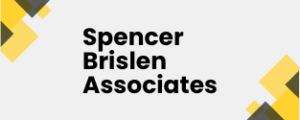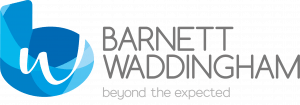What is it like to work as an Actuarial Associate with APR? Kate Gerhard tell us about her time there and offers her advice to those looking to become an actuarial associate.
Why did you choose a job in this profession?
A lot of people that apply for actuarial roles are looking for a career that allows them to apply their mathematical knowledge in a real world setting and I am no exception. I’ve always been mathematically minded but also enjoy system development and programming, so was looking for a role that combined these. Since joining the profession I’ve had the opportunity to learn how to use several programming languages and actuarial modelling platforms to build both stochastic and deterministic mathematical models – these include VBA, SQL, Prophet and R.
I was also attracted to the profession by the variety of work that comes under the actuarial umbrella: many actuarial graduate jobs will involve some form of rotation around departments or teams, so even though I was not sure exactly which area I wanted to work in, I’ve been able to try a few different parts of the profession, which means I am constantly learning and developing my professional skills.
How did you get your job as an Actuarial Associate at APR?
 After graduating from university, I took a year out to decide what I wanted to do. Having worked in accounts for 6 months, I then went off travelling. I’d been interested in the actuarial profession for a while, but talking to a newly qualified actuary on my travels sealed the deal. I started looking for actuarial roles back in London and found APR – the varied nature of the role and the company culture seemed like they would suit me well, so I applied and I’ve now been working for APR for about two and a half years.
After graduating from university, I took a year out to decide what I wanted to do. Having worked in accounts for 6 months, I then went off travelling. I’d been interested in the actuarial profession for a while, but talking to a newly qualified actuary on my travels sealed the deal. I started looking for actuarial roles back in London and found APR – the varied nature of the role and the company culture seemed like they would suit me well, so I applied and I’ve now been working for APR for about two and a half years.
What was the application process like – any advice?
The application process for APR was fairly straightforward – after submitting a CV and cover letter, I was invited to complete a short online test which was followed by a phone interview and then an assessment centre. My advice for the interview would be to focus on communication; technical skills are very important, but even a perfect technical solution is only of limited use if nobody understands it but you! I would also suggest researching what skills the company is looking for, and making sure you have examples of times you’ve shown them.
What are your main duties/roles?
The role can vary significantly between clients. So far, I’ve worked on four on-site client projects and two consulting projects in my time at APR, and while each has been very different they all required a high level of technical skill.
Most of my work so far has been in Actuarial Systems teams, involving the development and updating actuarial of models and tools that are used in the wider business. This work broadly follows a development cycle which, once the objective has been determined, usually consists of the following steps:
- Write a specification with a high-level overview of the planned changes to be made, or the program to be written. This should involve quantifying the expected differences in the model results.
- Write the relevant code to make the changes, or write the program.
- Test that the code has the intended effect on the model results, and also does not have any unintended effects on the model. If the test is not passed, the source of any errors needs to be found and changes made to remove them.
- Document the changes made and the testing that has been done.
I have also worked in teams with very different responsibilities. A recent role took me into a new area of the actuarial profession, where I was on a team calculating the amount of capital that needs to be held in respect of the risks the company faces. I found this to be less structured than my work in Systems teams – there is no ‘correct’ way to quantify a lot of risks so a large part of the role was justifying and explaining the data and methodologies that had been used.
Is it a 9-5 job?
Usually I’ll work about 9-5:30, with slightly longer hours as deadlines approach. I find the work-life balance to be very manageable, although it is more difficult as exams approach and more evenings and weekends are spent studying.
What skills are useful in this sector/profession?
As well as the technical and communication ability mentioned above, I’ve picked out two further skills I’ve found are important:
Time management both at work and in study: There are only two exam sessions a year so it’s important to plan your time well in order to be prepared, especially when sitting more than one exam.
Adaptability: I have found that the working environment can change rapidly – priorities and requirements can and do change, so it’s very useful to be able to switch between tasks when required, and later pick back up any tasks that have been de-prioritised. Also, developments may be in an unfamiliar area or in an unfamiliar system so it is very useful to be able to pick up new skills quickly.





